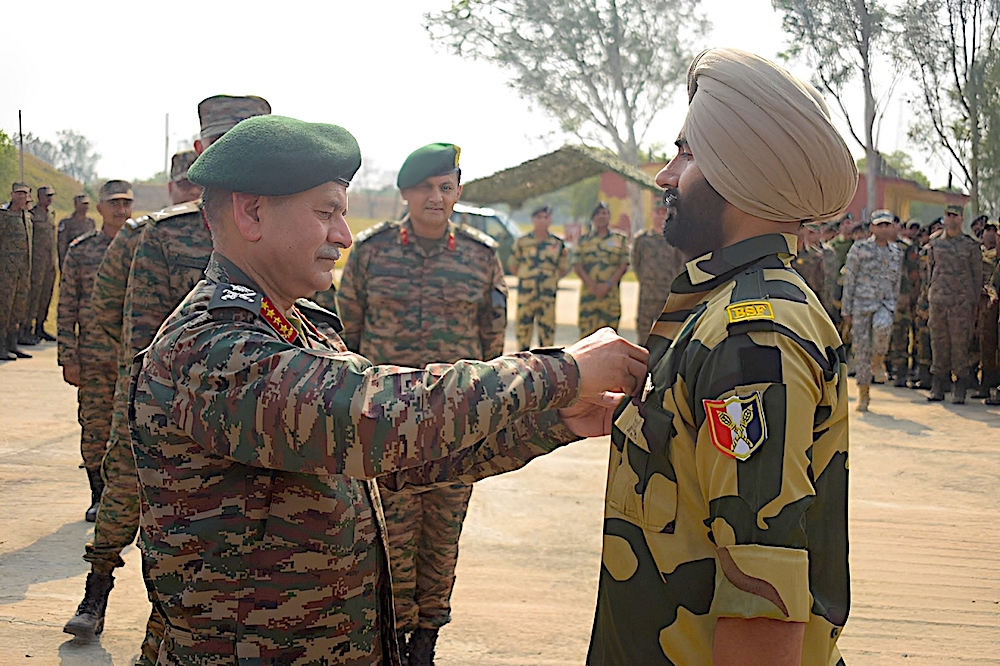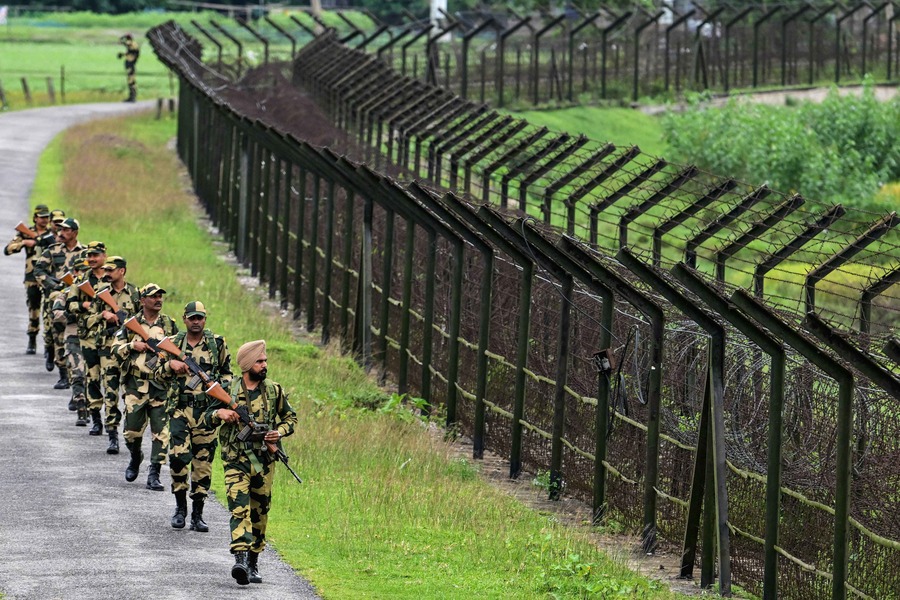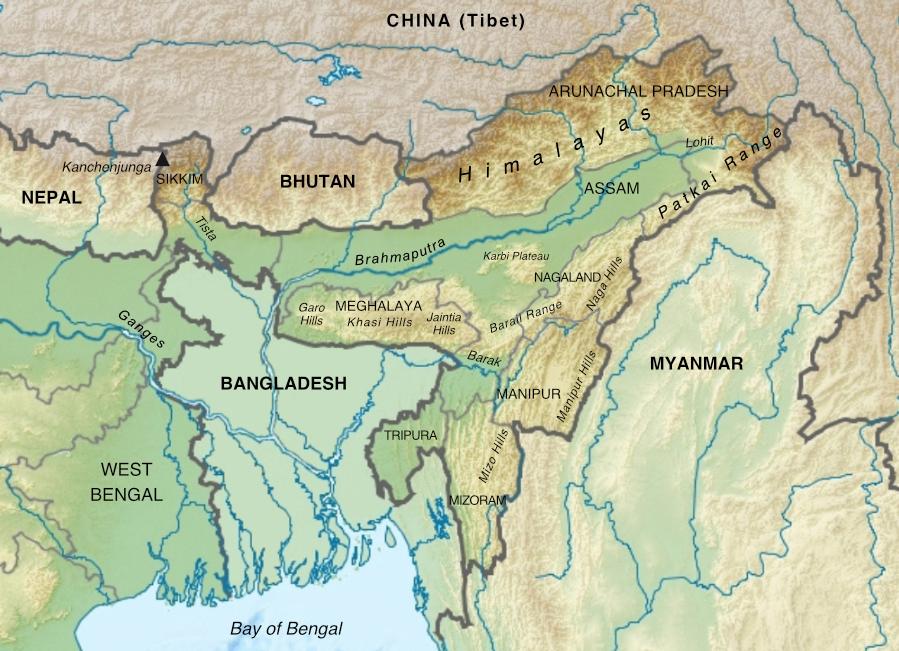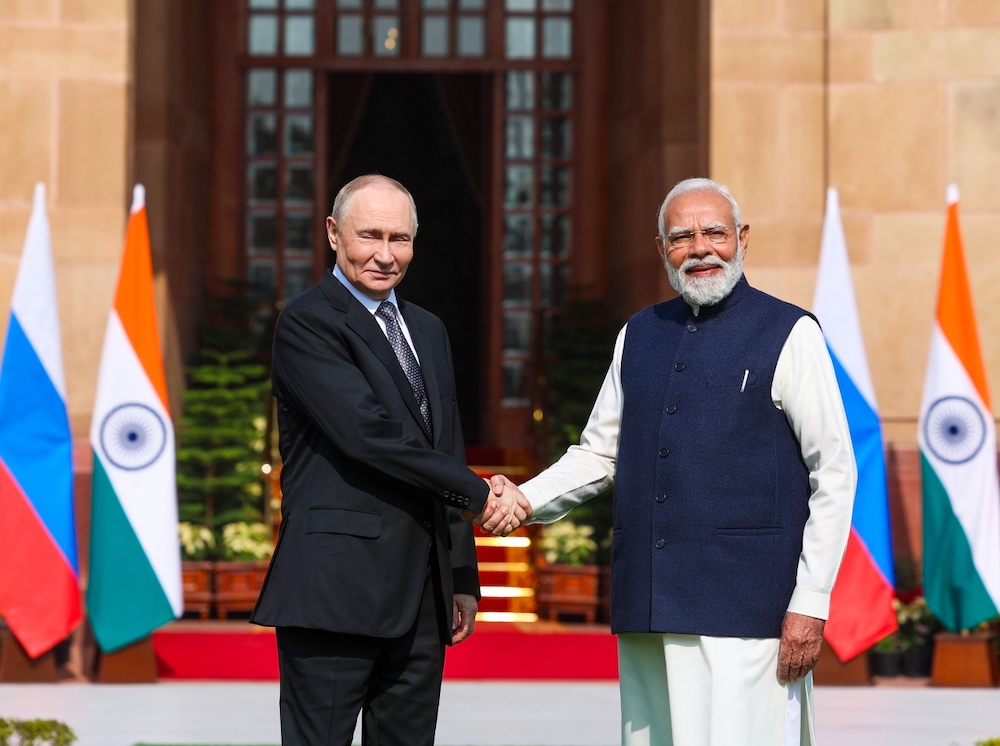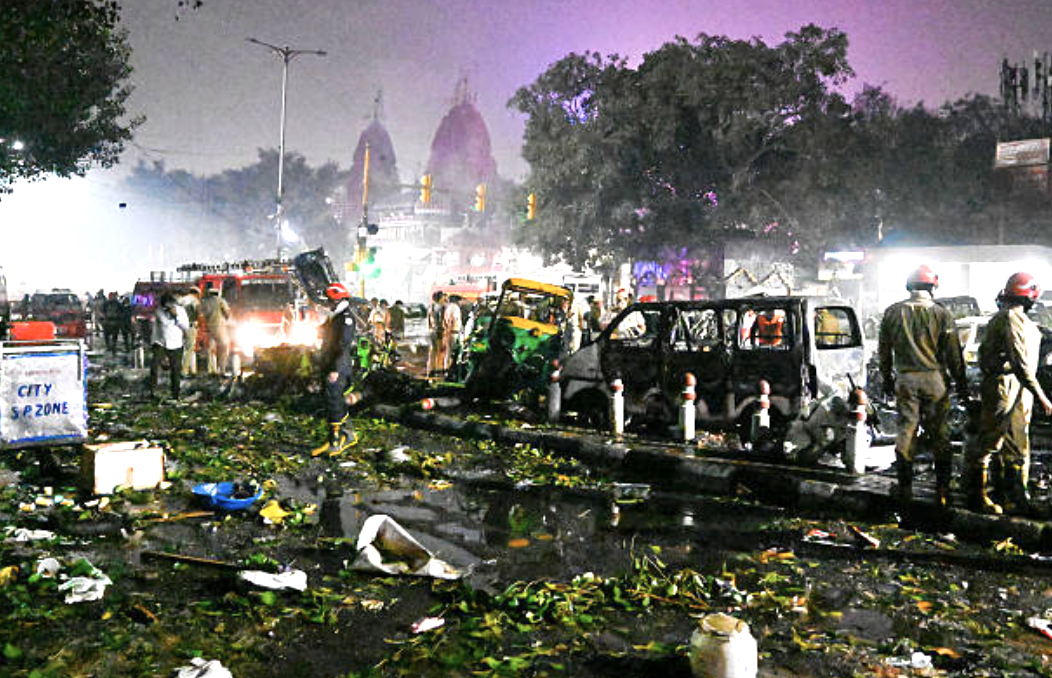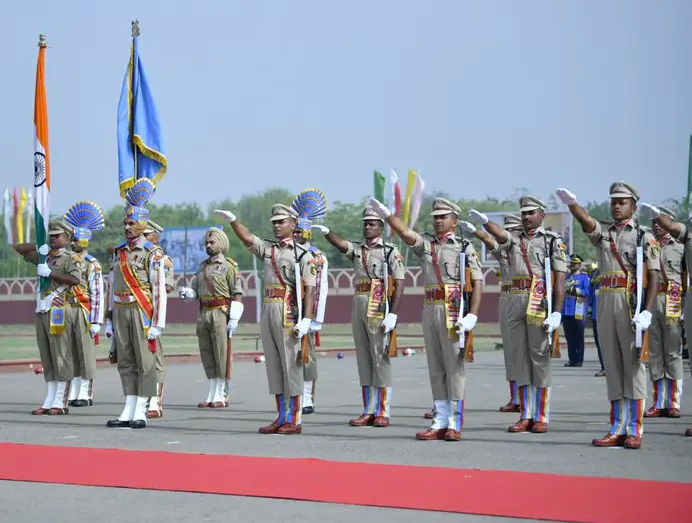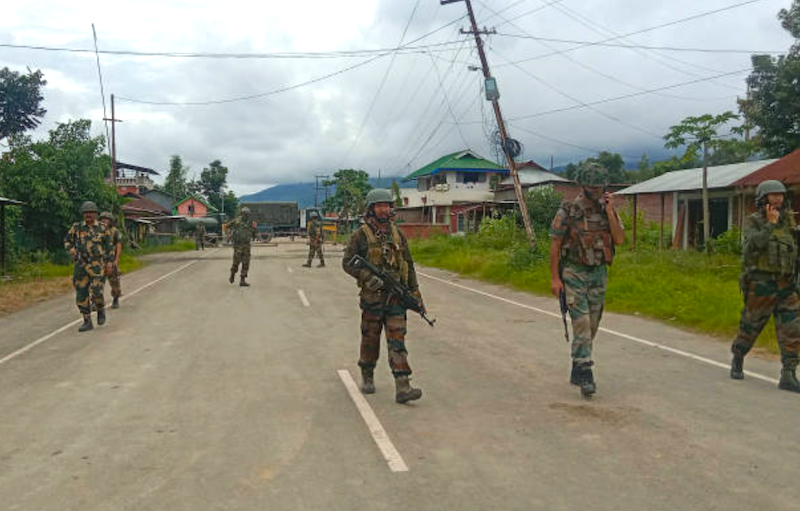 Security forces patrolling a road in Manipur’s Bishnupur district. (Photo via Facebook)
Security forces patrolling a road in Manipur’s Bishnupur district. (Photo via Facebook)
For Manipur, peace has remained elusive since May 3, the day violent clashes between Meiteis and Kukis started. The cycle of violence continues despite claims to the contrary by the central and state governments. The violence has engulfed the whole state claiming nearly 200 lives (180 officially) and displacing more than 50,000 people from their homes. The state practically stands divided geographically and ethnically between valley and hill areas – with the valley solely inhabited by the Meitei people and the hill areas by Kuki and other tribes.
The current cycle of violence has once again brought to fore the Kukis’ long-standing demand for a separate administrative structure for the hills within the constitutional framework. This demand has been made afresh by the public representatives of the Kuki people. The growing chasm between the Meiteis, which form the majority in the state, and the Kukis have led to the Kuki People’s Alliance withdrawing support to N Biren Singh-led Manipur government.
The withdrawal of support and demand for separate administrative structure for the hill areas, where most of the Kukis and other tribal communities live, reinforces the emotional division between the communities. This is also an indicator of the deep fault lines between the warring communities, which may be difficult to bridge in the near future.
Read also: Now, Manipur calls for ‘aggressive’ peace posturing
The state is in deep emotional and security distress. There is no engagement to address causes of this distress to bridge the Meitei-Kuki gap and look for a permanent solution to the Manipur crisis. The situation is so bad and depressing that the Supreme Court was forced to pull up the Manipur Police for delay in lodging an FIR in connection with a viral video of two women being paraded naked. The court was compelled to term the crime as “a horrendous crime of unprecedented magnitude.”
The gravity of situation in the state is depicted by the number of FIRs filed and arrests in connection with the ongoing ethnic violence, where mass killings, gang rapes, arson, and looting are taking place. There have been 6,532 FIRs filed but only seven arrests made. The Supreme Court noted that there appeared to be a “breakdown of constitutional machinery” in dealing with the ethnic violence that particularly targeted women. The situation on the security front is precarious. In a fresh incident of arms looting, a Meitei mob stormed yet another police armoury and took away sophisticated weapons. According to media reports, nearly 5,000 weapons, including sophisticated imported automatic rifles, and lakhs of rounds of ammunition have been looted from police establishments, so far.
Although around 1,500 of the looted arms were recovered or returned, thousands of these weapons are still in the hands of people who are involved in the violence. If that was not enough, the Manipur Police registered an FIR against the Assam Rifles, a central paramilitary force in which the officers are deputed from the Indian Army, for “impeding” the work of the police. On the other hand, the Assam Rifles claims that it was undertaking a task of ensuring sanctity of buffer zones and the Manipur Police was preventing its troops from carrying out their duty.
Read also: Manipur crisis will end only if govt sheds its parochial vision
On the internal security front, there is a need to stabilize the situation lest the fire of ethnic upheaval and violence spreads to other northeastern states. Already the impact of Manipur violence is felt in Mizoram. An organization of former militants asked the Meiteis living in Mizoram to exercise caution. In a statement, the Peace Accord MNF (Mizo National Front) Returnees Association or Pamara said that it was no longer safe for Meiteis to stay in Mizoram. This veiled warning by the former militants triggered an exodus of Meiteis in Mizoram despite assurances by the state government of ensuring safety.
The conflict in Manipur has interstate ramifications for the entire northeast. The conflict has created an environment of distrust between communities and geographical regions, which may not allow the situation to stabilize in Manipur. If the central government doesn’t take preventive and tough measures to control and cool the situation in the state, it is highly likely that the violence will spill over to other states in the region engulfing more communities. Already, tensions are quite high between other ethnic groups in the region.
Manipur is a border state with a 398-kilometre thickly forested open and porous border with Myanmar. There exists a “free movement” regime between India and Myanmar, which permits free movement for the hill tribes residing within 16 kilometres on either side of the border. The porosity and thick forest cover facilitate infiltration of militants and other anti-national elements, including drug smugglers. There is a need to plug the India-Myanmar border at key places to reduce gaps used by these elements to their advantage. There is an urgent need to shift to the BOP (border outpost) concept, move the border-guarding forces forward from the hinterland for effective and aggressive border management. There is a need to ensure road connectivity to the international boundary, fence feasible stretches on priority, and go for unmanned sensors in non-feasible stretches.
But first, BOPs must be built right on the border for effective border guarding. This needs to be done urgently. Any delay in the development of border infrastructure will jeopardize the security of the northeast, which in turn will rapidly become a threat to our national security.
Read also: Mobs loot over 4,000 sophisticated weapons from police armouries
The Manipur situation is a problem of monstrous proportions, which requires statesman like attitude on the part of the political leadership and mature handling. The dormant ethnic divide between the Meitei and Kuki people was triggered by the Manipur high court direction asking the state government for its recommendations “preferably within four weeks” in the Meiteis’ case for granting them “scheduled tribe (ST)” status. Certain groups enjoying political patronage started taking part in the violence, which further compounded the situation, which was already volatile.
Now, as things stand, everyone in the state seems aggrieved. There is a total lack of trust between the communities and total lack of confidence in the politicians representing different communities. This calls for the central government to create an environment immediately for the engagement between the warring communities.
Since the Manipur disorder has national security implications, there is an urgent need to first restore peace and then look for workable solutions for the communities to find lasting peace.
So, what is the solution to get out of this stalemate and imbroglio?
There is no denying the fact that the central government has a strong desire to stabilize the situation in Manipur to keep the state and entire northeastern region stable and peaceful. However, to achieve that, it must first establish peace. One of the first steps is to induct more central armed police forces, like the Central Reserve Police Force and the Border Security Force, in the state for internal and border security. To restore trust and confidence of the Manipuri people, impose president’s rule in the state and let it continue until the situation on ground improves. Bring the perpetrators of violence and atrocities against women to justice expeditiously. Simultaneously, look for a long-term solution to the Manipur problem.
Read also: Women-led mob forces Army to free top terrorist among 12
One of the probable courses could be to go into the whole gamut of issues by appointing a high-powered group on the pattern of Kargil Review Committee to deliberate upon the burning issues, then suggest short-term, medium-term, and long-term solutions to the issues. The group should consist of experts on the northeast and bureaucrats with impeccable integrity without any political affiliations.
Once submitted, the expert group’s report should be analysed by a group of ministers and its recommendations implemented in a phased manner. The situation in Manipur is complex. There are no easy solutions to the issue. The Narendra Modi-led Union government needs to take all the necessary steps to ensure lasting peace in Manipur, which will also strengthen our national security.
Disclaimer: The views expressed in the article are the author’s own and don’t necessarily reflect the views of India Sentinels.
Follow us on social media for quick updates, new photos, videos, and more.
Twitter: https://twitter.com/indiasentinels
Facebook: https://facebook.com/indiasentinels
Instagram: https://instagram.com/indiasentinels
YouTube: https://youtube.com/indiasentinels
© India Sentinels 2022-23


